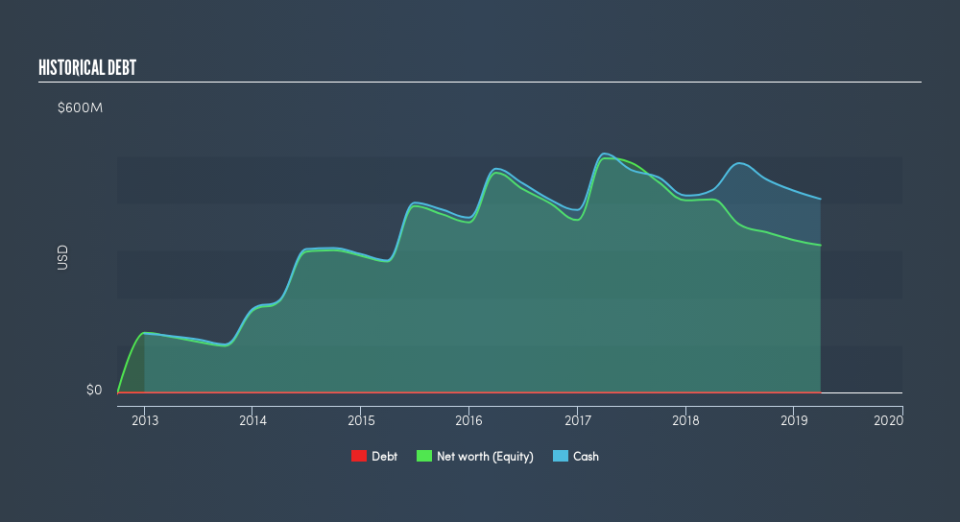Those Who Purchased Prothena (NASDAQ:PRTA) Shares Three Years Ago Have A 75% Loss To Show For It

Want to participate in a short research study? Help shape the future of investing tools and you could win a $250 gift card!
As every investor would know, not every swing hits the sweet spot. But you have a problem if you face massive losses more than once in a while. So consider, for a moment, the misfortune of Prothena Corporation plc (NASDAQ:PRTA) investors who have held the stock for three years as it declined a whopping 75%. That would certainly shake our confidence in the decision to own the stock. And more recent buyers are having a tough time too, with a drop of 34% in the last year. Shareholders have had an even rougher run lately, with the share price down 17% in the last 90 days.
View our latest analysis for Prothena
With just US$914,000 worth of revenue in twelve months, we don't think the market considers Prothena to have proven its business plan. This state of affairs suggests that venture capitalists won't provide funds on attractive terms. So it seems that the investors focused more on what could be, than paying attention to the current revenues (or lack thereof). For example, they may be hoping that Prothena comes up with a great new product, before it runs out of money.
Companies that lack both meaningful revenue and profits are usually considered high risk. You should be aware that there is always a chance that this sort of company will need to issue more shares to raise money to continue pursuing its business plan. While some companies like this go on to deliver on their plan, making good money for shareholders, many end in painful losses and eventual de-listing. Prothena has already given some investors a taste of the bitter losses that high risk investing can cause.
When it last reported its balance sheet in March 2019, Prothena could boast a strong position, with cash in excess of all liabilities of US$263m. That allows management to focus on growing the business, and not worry too much about raising capital. But with the share price diving 37% per year, over 3 years, it could be that the price was previously too hyped up. You can click on the image below to see (in greater detail) how Prothena's cash levels have changed over time. The image below shows how Prothena's balance sheet has changed over time; if you want to see the precise values, simply click on the image.
Of course, the truth is that it is hard to value companies without much revenue or profit. What if insiders are ditching the stock hand over fist? I'd like that just about as much as I like to drink milk and fruit juice mixed together. It costs nothing but a moment of your time to see if we are picking up on any insider selling.
A Different Perspective
Investors in Prothena had a tough year, with a total loss of 34%, against a market gain of about 8.7%. However, keep in mind that even the best stocks will sometimes underperform the market over a twelve month period. Regrettably, last year's performance caps off a bad run, with the shareholders facing a total loss of 14% per year over five years. We realise that Buffett has said investors should 'buy when there is blood on the streets', but we caution that investors should first be sure they are buying a high quality businesses. Shareholders might want to examine this detailed historical graph of past earnings, revenue and cash flow.
If you would prefer to check out another company -- one with potentially superior financials -- then do not miss this free list of companies that have proven they can grow earnings.
Please note, the market returns quoted in this article reflect the market weighted average returns of stocks that currently trade on US exchanges.
We aim to bring you long-term focused research analysis driven by fundamental data. Note that our analysis may not factor in the latest price-sensitive company announcements or qualitative material.
If you spot an error that warrants correction, please contact the editor at editorial-team@simplywallst.com. This article by Simply Wall St is general in nature. It does not constitute a recommendation to buy or sell any stock, and does not take account of your objectives, or your financial situation. Simply Wall St has no position in the stocks mentioned. Thank you for reading.

